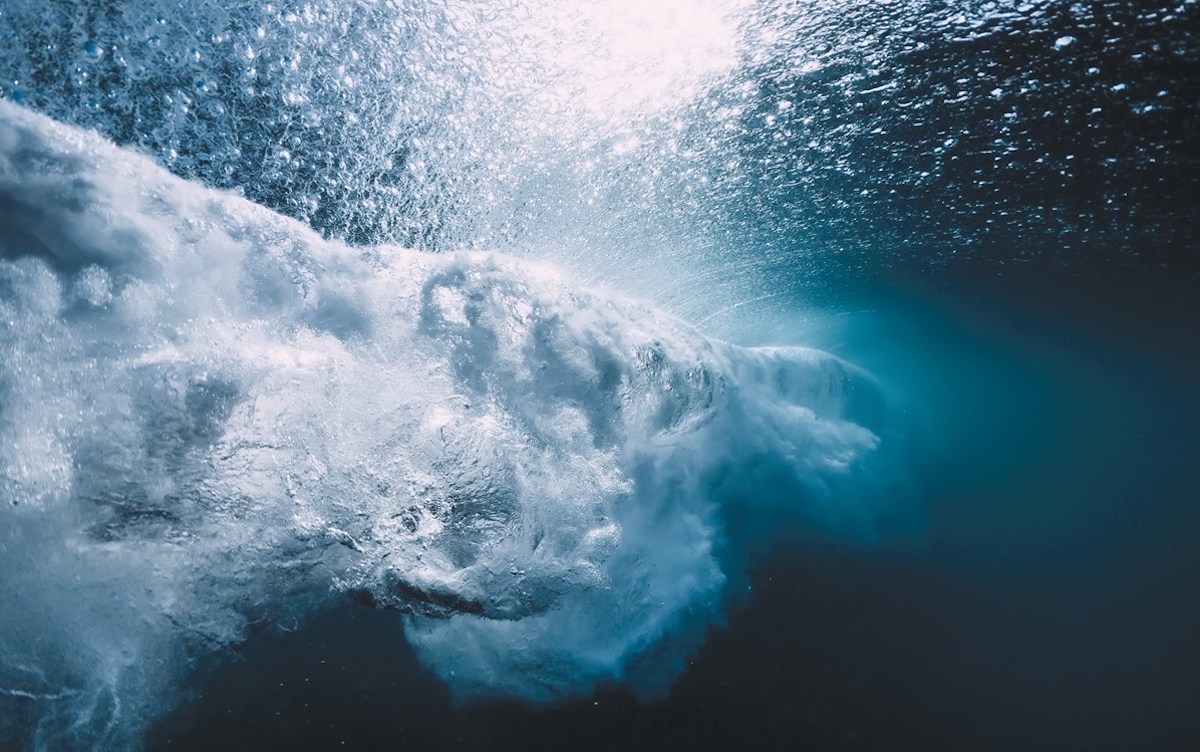Image by Perth Festival
Reviewed by Kaelin Abrahams
The day is starting to break from her horizon home, and as you feel the nip of the salty gale on your skin, your mind begins to wander. You close your eyes and slowly inhale. You can hear the roaring crash of the waves under you, the defiant push of Poseidon’s hand against the cliff. You see the foam left on dark rocks, the greyish blue of the oceanic sheen. The wind touches your hair, but your heart is elsewhere. It’s preoccupied in a school of mackerel, darting, and directing. It’s in the midst of the shallow reef’s glory, in league with the curiosity of a brave blue tang. You’re somewhere you can’t control, nor truly comprehend, but isn’t it beautiful? Peace of mind. Peace of heart.
This, dear reader, is a snippet of the truly humbling and beautiful experience that Become Ocean was for a typical viewer. Performed by the Western Australian Symphony Orchestra on works created by young Australian composer Olivia Bettina Davies, Benjamin Britten (featuring his evocative Four Sea Interludes), and award-winning composer, John Luther Adams; this two-hour masterpiece within Perth Concert Hall was magical.
From the very first opening of the orchestra, I knew what we were going to experience was something unforgettable. Introducing herself after an intro that mimicked the temperament of our waves from brass and strings, Olivia Bettina Davies confided to us her love of each individual instrument. The shape, the body, and sound they had to offer. Through this, she found inspiration from pendulum waves to use the musical family of an orchestra to construct a symphony that gave justice to the depth, curiosity, and omnipotence of our deep blue ocean.
The first half of the concert was a celebration of the living nature of our largest natural biome. Split into two acts, the first was the human experience in a turbulent sea, with the unending pull and push, the collision of sea and land, and the shriek of gales. I was gobsmacked to watch muzzled trumpets utilised for the sound of the wind, the drawn-out, and personal notes played by strings for the waves. This was a tribute to an unashamedly mysterious home.
The second act by Benjamin Britten was an interpersonal experience about the story of so much wildlife in their own existences. You could feel the prey running from the predator and the joys of being in a school amidst coral. It was lively, like the Little Mermaid, and celebrated both the innate curiosity, fear and whimsical nature of our seabeds.
The second half of the concert was a piece by John Luther Adams called Become Ocean, the concert’s namesake. Utilising a more minimalist approach, this forty-two-minute piece wasn’t an orchestral work, but instead, three performances occurring at once. The three groups, displayed with a purple, yellow and red light, were made up of the strings, the percussion and woodwind, and the brass. Representing the diversity of the ocean, the groups swayed and combatted, symphonised, and complemented one another as differing elements, from the wind, the waves, and the life to the rocks, all interacted with one another.
It was like three different currents interrelated with one another, only joining occasionally to celebrate and create the incomprehensible depth of our waters. What could have been the natural-esque cousin of Han Zimmer’s work in Interstellar, this piece washed me away into thoughts about my day, my loves, my struggles, and my dreams.
The minimalism of it all was its greatest strength. In reflection of the ocean as intrinsically beautiful, unending, and humble- this piece too celebrated its subject matter not in grandeur, but in unchallenged simplicity.
However, dear reader, my greatest delight was taking note of the audience. It was casual, it was of all ages, showing all emotions and ways of life, and in unison rose in thunderous applause at the end of every act.
In a beautiful venue, amidst a humble atmosphere that mercifully provided an intermission in between three glorious yet calming acts. I invite you, dear reader, to let go and be taken away by the tide like I was.

